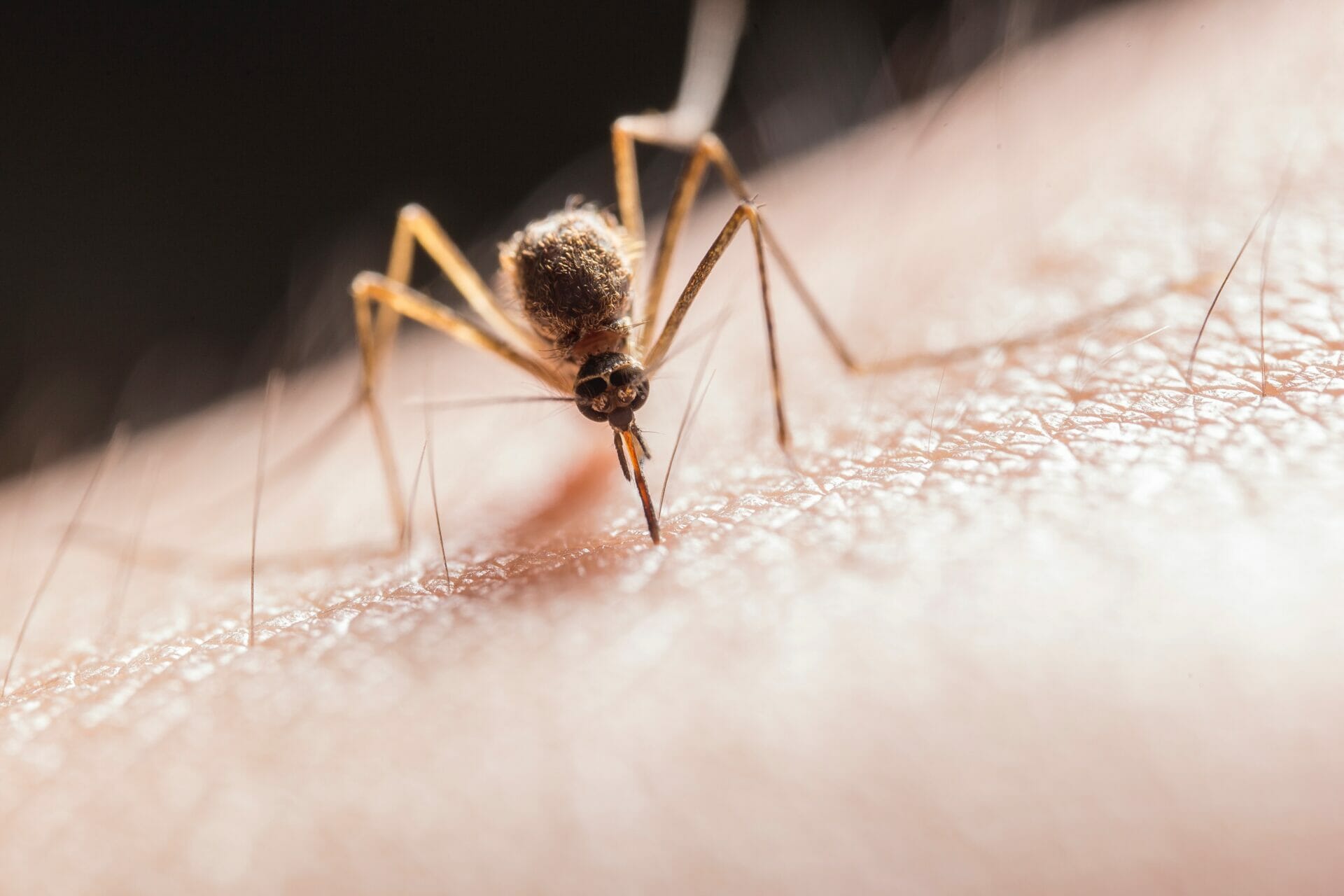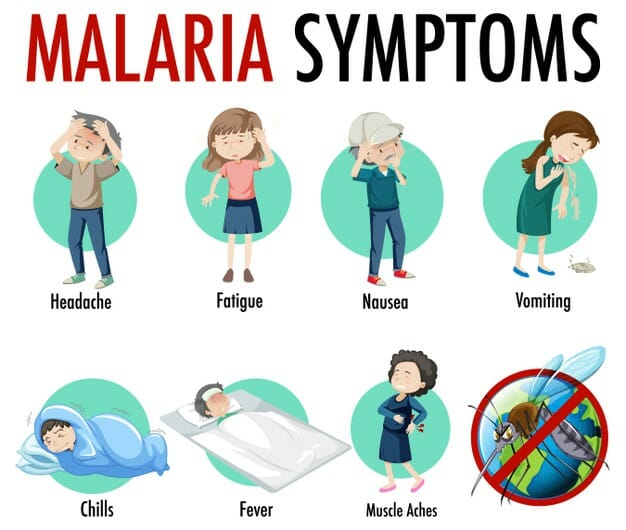Malaria has caused so many deaths and around the world. To be on a safer side, it is best to know what malaria is, the symptoms of malaria, its causes, and its cure.
Facts About Malaria
Malaria is still widespread in tropical and subtropical regions, despite being rare in temperate climes. Over 400,000 people die from malaria each year, and over 290 million individuals contract the illness.
In the US, malaria is not very common. However, you can acquire it through international travel. In the United States, 2,000–2,500 persons are diagnosed with malaria annually. However, the majority of these individuals are returnees from nations where malaria is more prevalent, which includes regions of South America, Southeast Asia, and Africa south of the Sahara desert. The temperatures in these nations are hot enough to support the growth of anopheles mosquitoes, which are the carriers of the malaria parasite.
Malaria claims the lives of about 608,000 people annually in 85 countries. Malaria is less likely to infect and kill people in nations like the United States where access to medicine is available.
Malaria is not common in the United States. Nonetheless, as of September 2023, nine individuals—seven in Florida, one in Texas, and one in Maryland—were diagnosed with malaria; medical professionals believed these individuals had the illness while in the country. Experts believe the parasite was brought into the United States by a visitor to one of those nations. Then, a local mosquito bit that individual, infecting others with malaria.

What Is Malaria?
Malaria is a life threatening disease that is transmitted through the bite of an infected Anopheles mosquito. An infected mosquito carries a parasite called Plasmodium. When bitten by an infected mosquito, it releases the plasmodium parasite into your bloodstream.
Immediately the plasmodium parasites are inside your body, they travel to the liver, where they mature. Some days later, the mature parasites enter the bloodstream and begin to infect the red blood cells.
Within 48 to 72 hours, the parasites inside the red blood cells multiply, which causes the infected cells to burst open itself. The plasmodium parasites continue to infect red blood cells, leading in symptoms that occur in cycles that last two to three days at a time.
Malaria is mostly found in tropical and subtropical climates because the climate is favourable for the parasites to live. In most parts of sub-Saharan Africa, entire populations are infected more or less constantly with malaria. Malaria is also common in Central America, the northern half of South America, and South and Southeast Asia. The disease also occurs in countries bordering on the Mediterranean, the Middle East, and in East Asia.
In Europe, North America, and the developed countries of East Asia, malaria is still encountered in travellers arriving or returning from affected tropical zones. Statistics were taken by The World Health Organization (WHO) and they found out that, in 2016, there were an estimated 216 million malaria cases in 91 countries. f
Falciparum causes a more severe form of the disease and those who contract this form of malaria have a higher risk of death. An infected mother can also pass the disease to her baby at birth which is known as congenital malaria.
Malaria is transmitted by blood, so it can also be transmitted through an organ transplant, a transfusion or use of shared needles or syringes.
In the United States, the Centers for Disease Control and Prevention (CDC) report 1,700 cases of malaria annually. Malaria is not only known, it is also known in about 91 other counties, but most cases of malaria develop in people who travel to countries where malaria is very common.
Malaria infection in humans is mostly characterized by periodic attacks of fever and chills, anemia, splenomegaly (enlargement of the spleen), and often fatal complications.
In the early 21st century, the occurrence of malaria, and the number of deaths caused by the disease, seemed to be reducing. For example, the World Health Organization (WHO) estimated that in 2000 there were 233 million cases of malaria worldwide, which resulted in roughly 985,000 deaths, mostly of young children in Africa. In 2010 there were an estimated 216 million cases and 655,000 deaths. By 2018, cases had increased to 228 million worldwide, though deaths had continued to decline, numbering about 405,000 that year.
China became the 40th country to be officially declared malaria free in 2021 by WHO which is the most populous country worldwide to have been granted the designation. China had not experienced any indigenous cases for three years in a row, the qualification required to achieve WHO’s malaria-free certification.
Causes Of Malaria
Malaria in humans is caused by five related protozoan (single-celled) parasites: Plasmodium falciparum, P. vivax, P. ovale, P. malariae, and P. knowlesi. The most common worldwide is P. vivax. The deadliest is P. falciparum. In 2008 P. knowlesi, which was thought to infect primarily Old World monkeys and to occur only rarely in humans, was identified as a major cause of malaria in humans in Southeast Asia, accounting for as many as 70 percent of cases in some areas. P. knowlesi was found to be easily confused with P. malariae during microscopic examination, resulting in many cases being attributed to P. malariae when in fact they may have been caused by P. knowlesi.
Read Also:20 Effective Plants That Repel Mosquitoes
Symptoms Of Malaria
Symptoms of malaria fully develops within 10 days to 4 weeks after the infection. In some cases, symptoms may not develop for several months. Some malarial parasites can enter the body but will be dormant for long periods of time.Common symptoms of malaria are:
- Shaking chills that can range from moderate to severe
- High fever
- Flu
- Profuse sweating
- Headache
- Nausea
- Vomiting
- Abdominal pain
- Diarrhea
- sleeplessness or deep unresponsiveness and inactivity
- Anemia
- Jaundice
- Muscle pain
- Convulsions
- Shortness of breath
- Coma
- Loss of appetite.
- Bloody stools
How Is Malaria Diagnosed?
During your appointment with your doctor, he/she will be able to diagnose malaria. Your doctor will review your health history, a physical exam will also be performed.
Your doctor will be able to determine if you have an enlarged spleen or liver. If you have symptoms of malaria, your doctor may order additional blood tests to confirm your diagnosis. These tests will show:
– If you have malaria.
– The type of malaria you have.
– If your infection is caused by a parasite that’s resistant to certain type of drugs.
– If the disease has caused anemia.
– If the disease has affected your vital organs.
Life Threatening Complications Of Malaria.
Malaria can cause some life-threatening complications. The following may occur if malaria gets complicated:
- Swelling of the blood vessels of the brain, or cerebral malaria.
- Accumulation of fluid in the lungs that causes breathing problems, or pulmonary edema.
- Organ failure of the kidneys, liver, or spleen.
- Anemia due to the destruction of red blood cells.
- Low blood sugar.

How Is Malaria Cured Or Treated?
World health initiatives provide bed nets sprayed with insecticide to keep people safe from mosquito bites and preventive medications to lower the number of malaria cases. Children who reside in nations where malaria cases are common are advised to receive a malaria vaccination, according to the World Health Organization.
You may stay safe when traveling by using insecticides, bed nets, and protective clothes. Additionally, before, during, and after a travel to a high-risk area, you can take prophylactic medication. Common medications used to treat malaria have caused resistance in several malaria parasites.
Malaria can be life-threatening if you are infected with the parasite P. falciparum. Treatment for the disease is typically provided in a hospital. Your doctor will prescribe medications based on the type of parasite that you have.
In some cases, the medication prescribed may not clear the infection because of the parasite’s resistance to drugs. If this happens, your doctor may need to use more than one medication or change medications altogether to treat your condition.
Additionally, certain types of malaria parasites, such as P. vivax and P. ovale, have liver stages where the parasite can live in your body for an extended period of time and reactivate at a later date causing a relapse of the infection.
If you’re found to have one of these types of malaria parasites, you’ll be given a second medication to prevent a relapse in the future.
How To Prevent Malaria
There’s no vaccine available to prevent malaria. Talk to your doctor if you live in such an area that is being infested by mosquito. You may be prescribed medications to prevent the disease. There are good and effective medications for the treatment of malaria, but the medication is not 100% effective.
- Sleeping under a mosquito net may help prevent being bitten by an infected mosquito.
- Always clean the gutter in your surroundings.
- Covering your skin by wearing long clothes like a legging to cover any exposed skin help to protect you from mosquito bite.
- Plant mosquito repellent flowers around your compound.
- Making use of bug sprays containing DEET may also help prevent infection.
- Avoid outdoor exposure between dusk and dawn because they mostly come out to feed at night.
- Stay in well-screened or air-conditioned rooms
Read Also: 25 Effective Ways To Be Healthier In 2022 And Beyond
Conclusion
Malaria is a life-threatening disease caused by a parasite that’s carried by certain mosquito in warm climates.
The parasites that cause malaria attack your red blood cells. The symptoms of malaria are high fever, shaking chills, and other symptoms that may develop into life-threatening complications.
Malaria is a major threat to human health worldwide and a leading cause of illness and death in many developing countries, especially in young children. Pregnant women are also more vulnerable to the disease.
Most cases of malaria occur in sub-Saharan Africa and South Asia, but the disease also affects several other areas of the world, including Nigeria, Latin America, Southeast Asia, and Oceania.




Good